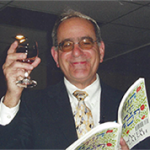“In a town of 30,000, it is almost a daily occurrence to see a patient in the bank or at the hardware store,” says G. Radford Moeller, MD, in private practice at CarolinaEast Internal Medicine in New Bern, N.C. “I have found that to be a big positive, for the most part. Most of the secondary gains we get from any private practice are the feedback from our patients.”
Social expectations are often different than those thought of as common in the city. For example, the taboo against treating one’s friends goes quickly by the wayside.
“In New York, I had heeded the advice that a physician should not treat his friends, for a number of what, at the time, seemed valid reasons,” says Dr. Block. “But one of the first patients who came to my office admonished me, ‘What do you mean you can’t treat me because I am your friend? You damn well better treat me because I am your friend!’”
A person thinking about working outside the city needs to understand exactly what ‘rural’ means. There will be fewer amenities, less shopping, but a more serene atmosphere.
—Martina Ziegenbein, MD
Marriage Considerations
For at least some physicians, marital bliss is another perk of working in rural areas. Dr. Moeller noted that one of the reasons he took his position in North Carolina was because the opportunities for couples who were both physicians were slim elsewhere. Both he and his gastroenterologist wife were offered jobs in New Bern.
There was another reason, too.
“We decided we wanted to focus on a smaller town after noting that many of our doctor–doctor couple friends who went to higher-pressure urban institutions did not stay married for too long,” says Dr. Moeller. “The ones still married are those who gave up the bright lights and wearing the six hats required of a professor when I came out of my residency at Duke 30 years ago. I have had a satisfying career, raised four kids, and remained married. At the end of the day, you can’t do much better than that.”
There is also a continuity of practice that you may not see in the city. It is not unusual to have treated multiple generations of the same family. This allows the rheumatologist to know the genetic predispositions and, to a certain extent, the medical peculiarities of the family. It also means a level of trust in the physician that can only be gained by years and years of experience.
Professional Interactions Can Be Scarce
While a less hurried pace and great scenery is a good thing, one of the minuses cited by rural practitioners is a lack of professional interaction with peers. This can be especially daunting when a newly minted physician begins his or her first practice.



